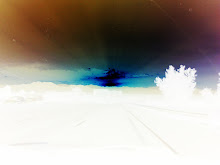November 28, 29 2016
Malaysian Borneo
We overnighted in Kota Kinabalu, Sabah... just long enough to get a room and go to the large night market for dinner.
Borneo has one of the oldest and most bio-diverse rainforests on the planet. Driving the economy on this huge island (Indonesia/Malaysia/Brunei) is the hardwood logging, some mining, offshore oil, and the increasing world demand for palm oil. Malaysia and Indonesia are the top two producers of palm oil. Huge tracts of forest have been clear cut for building materials, furniture, etc. and the land is then planted with palm plantations.
The next day we caught the bus south east over the mountains to visit the orang-utans rehabilitation sanctuary at Sepilok. It has been accepting orphaned and displaced orangutans since 1964, and claims to have successfully reintroduced 60% of over 760 back into the wild.
The sanctuary is set on the edge of a preserved piece of old growth jungle. The young orphaned orang-utans (man of the forest) are fostered by human keepers for several years before they are ready to head out on their own. There are no fences defining the sanctuary for the animals. Juveniles, nursing mothers, and wild adults are welcome to come visit the supplemental feeding platforms as they choose, but the ultimate goal for the park is full independence.
There is also a Borneo sun bear rehabilitation center next door.
We have been enjoying the "low-season" travel with few western tourists in Sabah this time of year. Our dorm room at Sepilok Forest Edge Resort cost us <$10 each. We had the room to ourselves, they had a nice little soaking pool surrounded by birds, and included an enormous free breakfast.
Malaysian Borneo
We overnighted in Kota Kinabalu, Sabah... just long enough to get a room and go to the large night market for dinner.
Borneo has one of the oldest and most bio-diverse rainforests on the planet. Driving the economy on this huge island (Indonesia/Malaysia/Brunei) is the hardwood logging, some mining, offshore oil, and the increasing world demand for palm oil. Malaysia and Indonesia are the top two producers of palm oil. Huge tracts of forest have been clear cut for building materials, furniture, etc. and the land is then planted with palm plantations.
The sanctuary is set on the edge of a preserved piece of old growth jungle. The young orphaned orang-utans (man of the forest) are fostered by human keepers for several years before they are ready to head out on their own. There are no fences defining the sanctuary for the animals. Juveniles, nursing mothers, and wild adults are welcome to come visit the supplemental feeding platforms as they choose, but the ultimate goal for the park is full independence.
Of course, being jungle, a visitor may also see troops of long tailed macaques, pig tailed macaques, or the occasional troop of proboscis monkeys.

















No comments:
Post a Comment